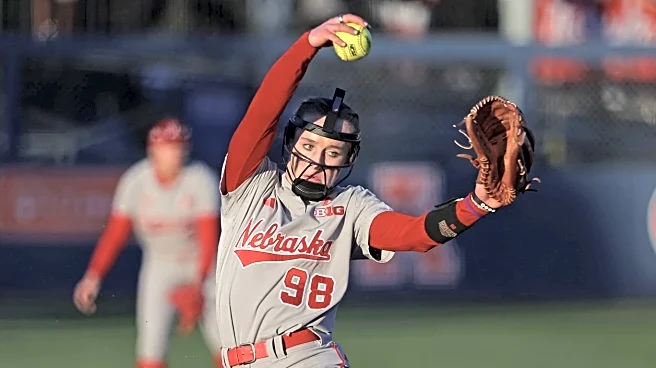What's Happening?
JuJu Watkins, a prominent USC guard, has made history by becoming the first NCAA athlete to directly invest in a professional women's sports team. Watkins has invested in the Boston Legacy, a new expansion franchise in the National Women's Soccer League
(NWSL). This move is seen as groundbreaking in the realm of women's and college sports, highlighting the increasing influence of student-athletes in shaping the future of professional sports. The Boston Legacy, which will play its home games at Gillette Stadium, is set to begin its inaugural season on March 14, 2026. Watkins joins a notable group of investors, including Indiana Fever forward Aliyah Boston, Chicago Bears quarterback Caleb Williams, Olympic gold medalist Aly Raisman, and actress Elizabeth Banks.
Why It's Important?
Watkins' investment marks a significant milestone in the evolution of women's sports, particularly in the context of Name, Image, and Likeness (NIL) rights. Her involvement underscores the growing trend of college athletes leveraging their brand power to influence professional sports. This development could pave the way for more NCAA athletes to invest in professional teams, potentially altering the landscape of sports investments and athlete endorsements. The Boston Legacy's establishment also signifies the NWSL's expansion and commitment to fostering women's soccer, which could lead to increased visibility and support for women's sports.
What's Next?
The Boston Legacy is preparing for its first season, with the home opener scheduled for March 14, 2026. As the team gears up for its debut, stakeholders in women's sports will likely monitor the impact of Watkins' investment on the team's success and the broader implications for athlete-driven investments in professional sports. The NWSL's return to the region and its expansion efforts may also attract further investments and partnerships, enhancing the league's growth and popularity.
Beyond the Headlines
Watkins' investment in the Boston Legacy highlights the potential for college athletes to influence professional sports beyond their playing careers. This move could inspire other athletes to consider similar investments, fostering a culture of empowerment and leadership among women in sports. Additionally, the involvement of high-profile investors may draw attention to the importance of supporting women's sports, encouraging more inclusive and equitable opportunities in the industry.















